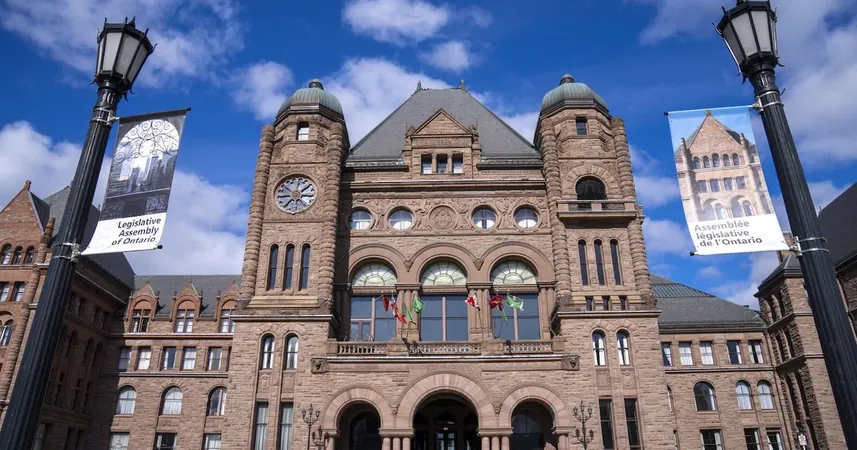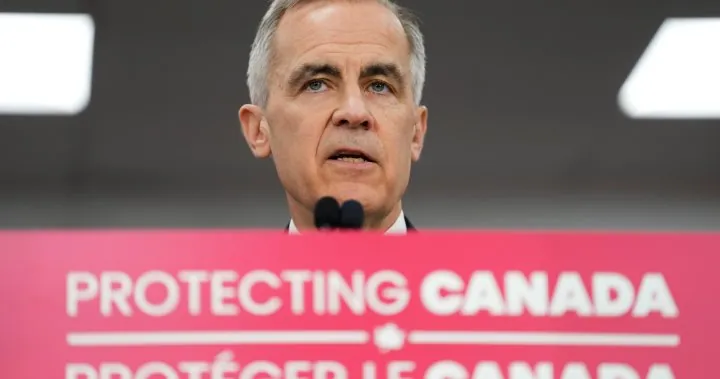
Ontario Offers Temporary Tax Relief to Businesses Amidst U.S. Tariff Concerns
2025-04-07
Author: Jacob
Ontario Government's Tax Deferral Initiative
In a strategic move to cushion the impact of U.S. tariffs on its economy, the Ontario government has announced a six-month deferral of certain taxes for businesses. This initiative is part of a broader effort to combat the economic turbulence sparked by U.S. President Donald Trump’s recent trade policies.
Premier Doug Ford's Statements
Premier Doug Ford emphasized the province's determination to protect its economic future. “While we cannot control the actions of President Trump, we hold the power to shape our own destiny,” he stated confidently.
Details of the Tax Deferral
The tax deferral, slated to take effect from April 1, 2025, will affect specific provincially-administered taxes, notably the Beer Wine and Spirits Tax and the Gasoline Tax. This pause in tax collection is expected to inject approximately $9 billion into the provincial economy, providing businesses with essential liquidity to maintain employment levels and navigate these challenging economic waters.
Support for Workers and Families
Ontario's Finance Minister, Peter Bethlenfalvy, reiterated the government’s commitment to safeguarding workers and families. “We are prepared to protect Ontario’s workers, businesses, and families from the unpredictability of tariffs imposed by the U.S.,” he remarked in a recent press release. “These measures are designed to help Ontario weather the storm while simultaneously laying the groundwork for our future prosperity.”
Rebate Program for Businesses
In conjunction with the tax deferral, the government will also roll out a $2 billion rebate program administered by the Workplace Safety Insurance Board (WSIB) aimed at eligible businesses. This additional financial support is intended to encourage companies to keep their workforce intact during this period of uncertainty.
Impact of U.S. Tariffs
Last week, President Trump announced new “retaliatory tariffs” targeting numerous countries. While Canada avoided these additional levies, it remains affected by pre-existing tariffs, such as a 25% tax on certain imports that are not in compliance with the Canada-United States-Mexico Agreement (CUSMA), alongside tariffs on steel, aluminum, and automobiles.
Conclusion
As the situation evolves, the Ontario government’s proactive measures serve as a vital lifeline for businesses striving to navigate the complexities of international trade and domestic economic stability. This bold step not only aims to bolster the province's economy but also sends a strong message of resilience in the face of external pressures. As the consequences of U.S. trade policy continue to unfold, all eyes will be on Ontario to see how these strategies play out and what additional measures may be introduced in the future to further support local businesses and workers.









 Brasil (PT)
Brasil (PT)
 Canada (EN)
Canada (EN)
 Chile (ES)
Chile (ES)
 Česko (CS)
Česko (CS)
 대한민국 (KO)
대한민국 (KO)
 España (ES)
España (ES)
 France (FR)
France (FR)
 Hong Kong (EN)
Hong Kong (EN)
 Italia (IT)
Italia (IT)
 日本 (JA)
日本 (JA)
 Magyarország (HU)
Magyarország (HU)
 Norge (NO)
Norge (NO)
 Polska (PL)
Polska (PL)
 Schweiz (DE)
Schweiz (DE)
 Singapore (EN)
Singapore (EN)
 Sverige (SV)
Sverige (SV)
 Suomi (FI)
Suomi (FI)
 Türkiye (TR)
Türkiye (TR)
 الإمارات العربية المتحدة (AR)
الإمارات العربية المتحدة (AR)